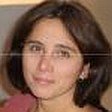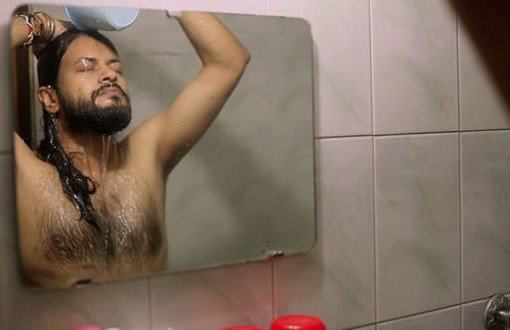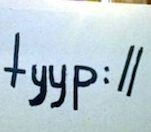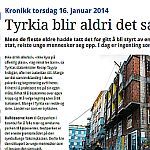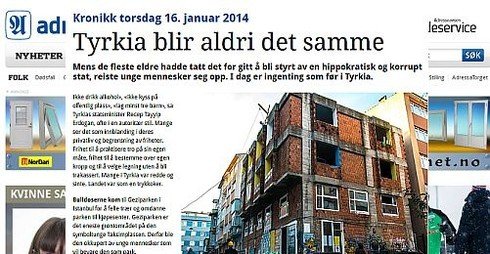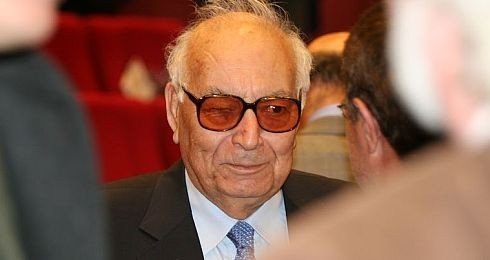In Islamic counties often women and homosexuals have limited freedom and added hardship in life. Men rather limit the freedom of others and make them “suffer”. A possible reason is that in such countries the patriarchal system is widespread; different from girls, boys are thought to be strong, dominant, decision takers and beloved – just because they are men.
Well, are the men of Islamic countries really happy? How do they carry that burden, how do they cover everything they are expected to be? While Koran was written in a language no longer spoken today (Koresh), what are the bases taken into consideration in the interpretations of the holly book? What is the real problem; the book or the interpretations? Nefise Özkal Lorentzen, seeks answers to those questions in the last film episode of her Islam Trilogy.
In her first film, Gender Me (2008), we met men who want to to be both homosexual and Muslim. In the second episode, 'A Baloon for Allah' (2011), she narrated why the women in Islam are unhappy. In the episode Manislam (2014), the leading roles belong to men in Islam.
The music of the documentary Manislam was composed by the well-known Turkish sufi flute player 'Mercan Dede' and the film is sponsored by the Norwegian National Broadcasting TV (NRK). It is the result of a three years effort.
In Manislam, Özkal Lorentzen introduces muslim men to us, who see the necessity of a new understanding of Islam in the world, who can see the life in a different way than their fellow believers and who dare to ask questions.This documentary film is the story of four men from Indonesia, Kuwait, Bangladesh and Turkey; how they see Islam, what conflict they face while they attempt to change the dominant culture in their countries and how they disseminate their messages. According to the film director, these four men who try to shape a democratic and unitive Islam, in fact move toward their own freedom.
Nefise Ozkal's documentaries are slightly different then others, as it is enriched by animations and fairytale narrations. What is also special with her is that; she takes part in the movies as a mother and woman, besides being the film director. In Manislam, Özkal Lorentzen makes us sympathize and feel with the men in their pain, rather than barely informing or illuminating. The protagonists share their very intimate memories, other times confess to Özkal Lorentzen's camera.
İhsan Eliaçik
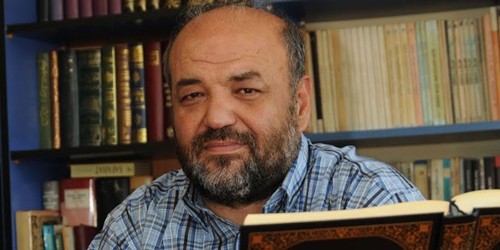
İhsan Eliaçik is well-known by Gezi Riot supporters in Turkey. According to one protester, he is "the reason that the riot is not separated as 'Muslim' and 'Non-Muslim'. Nefise Özkal Lorentzen had learned Islam from her dear grandmother and Eliaçɪk, who shares the same culture with her, gives her hope to find her Islam back from the fundamentalists.
According to Ihsan Eliaçɪk, there are two kinds of religions: dead and alive. Dead religions worry about, for example, who fasts, who dresses according to the book or who will go to paradise. Alive religions are anchored in daily life and rather deal with unjust actions, prevailing hunger or environmental problems.
He interprets Islam with a socialist view and claims that the books should be translated according to the time, and with rationality. He points to a never ending cycle:
"The problem is not the religion, it is the patriarchic society that imposes the men passion for power and possession. In a marriage, the man takes over the property of the woman's body and soul. Parents of this culture threat their male and female children differently. In this patriarchal system, men learn the egoism at early ages from their mothers.”
Eliaçık explains the understanding of justice, as base of Islam, as follows:
"I will be supporting the Kurds against Turks, until their conditions are equal. The same way, I will be at the side of women against men, Alevis against Sunnis, poor people against rich and non-believers against religious, until their conditions become alike.”
Referring the todays politics, he also explains humanity in his way:
"You are not human, if you ask the religion or political view of one who asks for your help."
Imtiaz Pavel
Pavel is a human rights (NGO) activist (Men Engage), who travels through Bangladesh and tells people that men and women are supposed to live under the same conditions. As a father of two, he believes that children and young people should be educated first, if we want to solve the inequalities in the societies. He employs two approaches for that: games and sport.
He conveys his messages to the children through a quiz board game, he created himself. He also encourages girls to play football, considered a boys game in the villages of Bangladesh. Indeed, in the villages Pavel visited, girls play football in shorts, while boys cheer for them.
He believes that to protect women rights is actually helping the men. He moreover tries to reflect on the problems of sex workers in Bangladesh. He says he can understand sexually abused women as he, as a child, was abused by an older man.
Dr. Naif Al-Mutawa
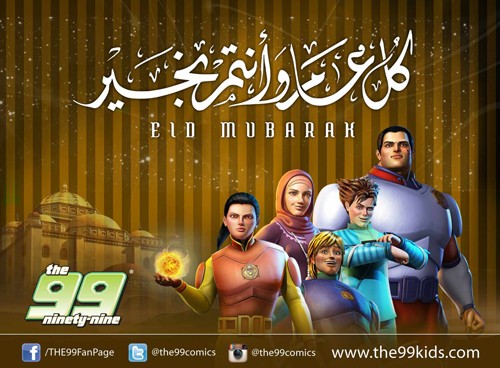
Naif Al-Mutawa is the creator of the first hero character cartoons of the Islamic world, "The 99", and at the same time CEO of the production company. The cartoon series, that started in 2006 as a periodical, depicts the adventures of 99 superheroes, which attribute to the 99 names of Allah. It aims to show the real Islam to the world without using the words Islam or Allah explicitly.
Al-Mutawa, is a psychologist and worked with war hostages in Kuwait, and Arab and African patients who experienced torture. For these studies he was granted UNESCO's children literature prize.
Al-Mutawa believes in the power of narration and noticed that there was no superhero character in the Islamic world, like Superman, Ironman or Batman in the Christian world. Through the characters he created, he narrates the adventures of the heroes who try to solve the world's problems.
In Manislam, he also points to some absurd interpretations of Koran:
"Koran commands 'do not eat pork and do not drink wine', which means those two words exist in the book. However Islamic countries avoid to use the words ‘pig’ and ‘wine’, they replace them instead with the words ‘rabbit’ and ‘juice’. What is forbidden according to Koran is to consume those foods, not the words."
"The 99" is banned in Saudi Arabia as it attributes Allah's names. Al-Mutawa is constantly threatened by fundamentalists, and a sheikh recently announced a fatwa for him.
Syaldi Sehude
Five Indonesian young men put on mini skirts and walked the streets of Jakarta with their slogans against rape on banners. This small event had a country-wide effect and became a headline in The Jakarta Post.
Sehude is the initiator and leader of this human activist group, called Laki Laki. They try to tell Indonesians with this action that what you wear is not automatically an invitation for rape. They believe that in order to emancipate women, first the men should be freed.
"The men are expected to be strong and unemotional in this system. They cannot express their feelings freely, cannot cry,” says Sayaldi.
He explains that gender discrimination leads to violence. Sayaldi Sehude was a fundamentalist at young age and used to violate transsexuals together with his friends.
"I realized that this was not the person, who I wanted to be. I started to doubt and my doubt brought me to the truth."
In Indonesia, thousands of women are raped annually and the majority of these rapes happen in public areas. Laki Laki organizes forums in order to raise awareness on rape and claim that deterrent punishments should be applied to those who attempt that crime.
The mission of the film
Beside pointing out men's pain, Nefise Özkal Lorentzen's film also unveils an important fact of todays world to be considered: The people of Islamic countries are judged according to their countries' dominant religion, but not according to their individuals personality or talents. The bad reputation of Islam leads to prejudices and discrimination.
Christianity had experienced the Renaissance already in the16. century and this reform of the religion resulted in a new era in the history. Islam had not had a reform yet. Al-Mutawa, Eliaçık, Pavel, Sehude and the others portrayed in the film could be considered as pioneers of an Islamic Reform. The Thriology of Nefise Ozkal Lorentzen shows us that contributions to that reform are needed and rather soon.
With the hopes that these three films will be shown on Turkey's and world screens soon.
Nefise Özkal Lorentzen
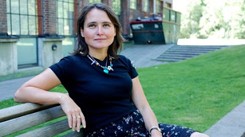 Nefise Özkal Lorentzen (born 1964 in Izmir /Turkey) is a Turkish-Norwegian film director. She holds a Bachelors degree in political science from Boğaziçi (Bosporus) University in Istanbul, and a Masters degree in media and communication from the University of Oslo. She has written and directed numerous documentary films, often touching controversial themes such as gay muslims, war and racial discrimination. In 2008, she also made her debut in fiction, writing and directing the five-episode drama TV-series The Young Detectives. In addition to making films, Özkal Lorentzen has also written and translated several books. She is mother of two sons and living in Oslo for 26 years. She is closely engaged in Sufi philosophy, which she reflects in her films.(DAH/ÇT/BM)
Nefise Özkal Lorentzen (born 1964 in Izmir /Turkey) is a Turkish-Norwegian film director. She holds a Bachelors degree in political science from Boğaziçi (Bosporus) University in Istanbul, and a Masters degree in media and communication from the University of Oslo. She has written and directed numerous documentary films, often touching controversial themes such as gay muslims, war and racial discrimination. In 2008, she also made her debut in fiction, writing and directing the five-episode drama TV-series The Young Detectives. In addition to making films, Özkal Lorentzen has also written and translated several books. She is mother of two sons and living in Oslo for 26 years. She is closely engaged in Sufi philosophy, which she reflects in her films.(DAH/ÇT/BM)
* Click here to read the article in Turkish.




